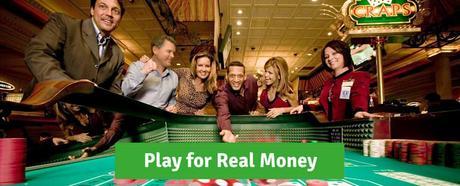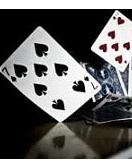 Regardless of whether you are playing in a normal casino or in an online casino, gambling is a very entertaining activity for leisure. Even in the event that you do not understand the math that is associated with it, you can have fun anyway. However, it is much more fun to understand the basic aspects that play a role in the probability calculation especially for probabilities in gambling. This means you are finally able to determine the best bets and usually make more money to win. And who does not want that?
Regardless of whether you are playing in a normal casino or in an online casino, gambling is a very entertaining activity for leisure. Even in the event that you do not understand the math that is associated with it, you can have fun anyway. However, it is much more fun to understand the basic aspects that play a role in the probability calculation especially for probabilities in gambling. This means you are finally able to determine the best bets and usually make more money to win. And who does not want that?
Here we present a brief introduction to the mathematics of gambling and answer the question of the role of probabilities playing casino games. The next time you play, you know these factors and will able to adjust your strategy accordingly.
Probabilities in gambling
As the term already suggests, the probability refers to the chance that a certain result will score in a situation. In the case of gambling, the probability is expressed in various ways, such as a percentage or probabilities in gambling. In any case, there are probabilities of numbers between 0 and 1.
If an event has a probability of 0, it means that this event will not occur at all. It is impossible. In Craps, where a six-sided dice are used, where the numbers one through six are to be read, the probability for numbers over six is exactly 0. If an event has a probability of 1, it will definitely occur, for example, in this example, the probability of throwing a number between one and six is 1.
However, many players have become accustomed to the fact that the probability is expressed as a percentage. In the above example, the probability of a number being rolled over six is 0 percent. However, the probability that you throw a number between one and six is 100 percent.
No matter which variant you prefer, the probabilities in gambling for a particular result can be calculated easily:
The number of variants for which the desired event occurs / all possible results.
To explain this simply by using an example, you can calculate the probability of a coin toss at which the coin is to land on the number. Here, you must know the total number of results that the coin lands on the number. For a normal coin the 1. The calculation looks like this:
1 (number of results for which the coin lands on the number) / 2 (total number of all results: head or number)
From this, we can deduce that the probability that the coin will land on the number is 0.5 or 50 percent.

Odds in probabilities in gambling
Odds refer to the chance you have on winnings when you make a particular stake. In principle, this is just another way of expressing the probability, but there are several ways in which the desired event does not occur, and there are several ways for this event to occur.
To understand this point better, we use the example of coin toss and dice. When you throw a coin, the odds are that it lands on the number, at 1:1. If you throw a dice with six numbers and you want to determine the odds for the number one, then there are five results that are not, but only a real result. The odds are 5:1. This can also be specified as a fractional number (1/6) or as follows 0.1677. The percentage is 16.67 percent.



Why probability and quotas are important
When you participate in gambling, you have a certain chance of winning. If the odds and likelihood are the same for a given bet, it is an “even money” bet. In the long term, you will win in half of all cases.
So if you use a euro to win a euro at a coin throw. Make an “Even Money” application. In the long run, you will not win or lose.

If, however, you put a euro on the coin to count on the number and have the chance to win two euros, you will earn a lot of money in the long run. In this bet, you will win two euros in half of all cases, while you lose only one euro in the other half.
Unfortunately, most casinos do not offer such good bets. In casinos, the providers earn money by interpreting the winnings, which are calculated on the basis of the odds and the probability, a little to the disadvantage of the players.

